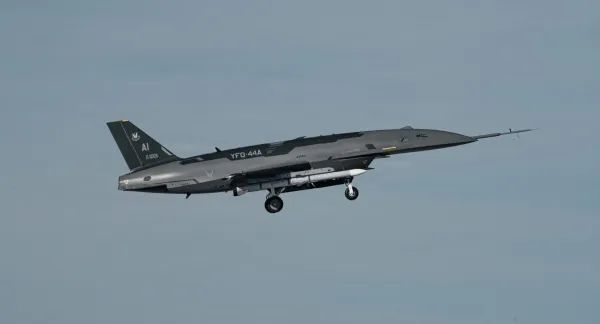Allvin: Congressional budget impasse poses challenges to Air Force reorganization

Some of the Air Force’s plans for an organizational shakeup to better posture itself for future conflicts with U.S. adversaries are at risk due to continued instability with the federal budget, according to the service’s top officer.
On Feb. 12, the Department of the Air Force announced it would be partially reorganizing — an effort dubbed “reoptimizing for great power competition.” The plans included a total of 24 near- and long-term action items across the department that will boost overall readiness and ensure the Air and Space Forces have the right capabilities for tomorrow’s battles.
When the plans were unveiled by Secretary of the Air Force Frank Kendall, he emphasized that officials intended to implement the changes without using excessive financial resources. But some of the action items will require extra funds, and those efforts are at jeopardy if lawmakers do not pass a federal budget in the near future, Air Force Chief of Staff Gen. David Allvin said Wednesday.
“To the extent that it’s going to require resources, it’ll definitely impact this because this is going to have to compete with all the other things that would have been above a cutline that will now be below a cutline,” Allvin said during an event hosted by the Brookings Institution.
At press time, Congress has not approved a budget for fiscal 2024 and federal agencies like the Department of Defense have been operating under a continuing resolution, which generally freezes spending levels at the previous fiscal year’s amounts. Leaders at the Pentagon have repeatedly stressed that continuing resolutions negatively impact the department’s plans to maintain readiness and introduce new warfighting technologies.
The current CR for the DOD is set to expire March 8 (for some agencies the CR will expire March 1, and for others March 8), and it’s likely that lawmakers will pass another to avoid a government shutdown.
However if a full-year FY ’24 budget is not approved by May 1, the government will face automatic cuts of 1% to both defense and non-defense programs — per a deal created in 2023 between President Joe Biden and then-Speaker of the House Rep. Kevin McCarthy, R-Calif.
“We have a more existential issue if that happens because the one thing is, if we do not get a budget appropriation — even if it’s a year-long CR, or if we go into that sequestered piece — the one thing that we really lose is time and our ability to be able to spend the precious resources on the things that we planned on in order to keep pace,” Allvin said.
The reoptimization plan includes a range of initiatives for the department that could be affected, including how it trains airmen and guardians; the way the Air and Space Forces hold exercises; the structure of Air Force operational wings and Space Force combat squadrons; and improvements to developing and fielding new capabilities.
While he did not specifically name which of the 24 changes would be impacted by a long-term budget impasse, Allvin added that the initiatives that can be done in a “revenue neutral manner” will still be implemented.
“It’s not a matter to me of, this is an optional thing that we think is a good idea to do,” he said. “I just think the strategic environment compels us to do this, otherwise we find ourselves in a situation next year where … we fall further behind.”






